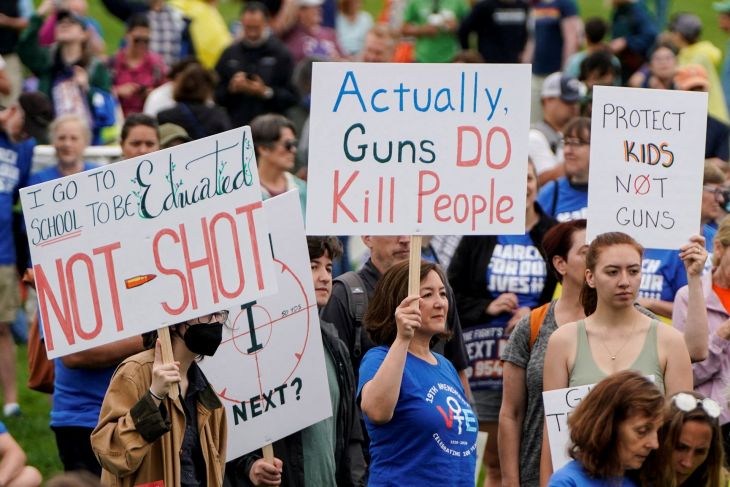Former Chief Justice of the U.S. Supreme Court Louis Brandeis once said that we can have democracy in this country, or we can have great wealth concentrated in the hands of a few, but we can't have both.
In 2020, U.S. politicians spent over $14 billion to get elected. The top 1% of the population controlled 32% of the nation’s wealth. The bottom 50% controlled only 2% of the wealth.
Can a democracy survive when election funding favours those with the deepest pockets? If so, can politicians ever place the voters’ needs first before those of their financiers’? It does not appear so.
People around the world are frustrated and feel marginalized by a political class that doesn’t address their needs or views. They are tired of voting for politicians who simply toe a party line rather than translate their constituents’ views into policies and programs. A major example of this is the fact that 73% of American voters support gun control legislation but Congress continues to heed the demands of the National Rifle Association that funds their political campaigns.
Aristotle once observed that republics decline into democracies and democracies degenerate into despotisms. That is becoming more apparent as leaders of many countries try to destroy or minimize democratic institutions in favor of their own personal power.
The frustration of voters around the world with their respective political classes is translating into their being more readily willing to move on from traditional political parties and consider parties and leaders who amplify these frustrations and use them to achieve political power.
Mark Twain once observed that a lie will go around the world while the truth is still putting on its boots. Social media instantly creates global virtual communities that amplify these frustrations, and for leaders to mold public opinion against the democratic principles that guide liberal democracies.
Who is to blame?
Money and social media – two major elements in the decline of democracy.
But there are more.
Voters are increasingly being asked to vote for the least bad candidate rather than the best. Many in the U.S. wonder if a discredited septuagenarian and an aging octogenarian are the best candidates out of a population of 300 million. In Canada, many are asking if the only alternatives are a Liberal Prime Minister who trips from scandal to scandal and a Conservative leader who is importing his politics of division from Trumpian America.
“The best argument against democracy is a five-minute conversation with the average voter.” Winston Churchill’s quote sums up what it means to have a good democracy.
For a democracy to work, those who are making the decisions, the average voter, need to have a broad knowledge of complex issues. Today, however, rather than study the issues, many voters simply listen to overly simplified tweets that are more often than not inaccurate and merely serve the interests of those who tweet them.
Most media do not provide objective truths. Rather they cater to their different constituencies and to the whims of their owners who seek to shape voters’ minds rather than inform voters so that they can make up their own.
When illiberal democrats come to power, the first thing that they do is destroy the educational system and replace facts and science with conjecture and propaganda.
We are witnessing this phenomenon in the U.S. in Republican controlled states and in other countries where political leaders have replaced science and fact with religion and bigotry, denigrating experts as “elites” and promoting conspiracy theories that are easier to understand that scientific fact.
Today, a handful of powerful people control social media – the main tool being used by anti-democratic forces to make an impact globally.
As British comedian Sasha Baron Cohen has noted, democracy is dependent on shared truths, and autocracy on shared lies. Democracy is based on truth, autocracy on fear.
Today, shared truths and shared lies are battling it out to persuade the average voter. Whether democracy can survive depends on the outcome of this battle and how we individually and collectively deal with it.
I am not optimistic at this time that democracy as we know it will survive given current social and political dynamics.
I hope that I am wrong.
Keep reading: Israel’s Religious Nationalism
Edition: Estefanía Cardeña
Las autoridades garantizan que la fiesta se viva en un ambiente familiar, ordenado, limpio y seguro
La Jornada Maya
Se espera ambiente muy caluroso con temperaturas máximas de 34 a 36 grados
La Jornada Maya
Comunidades rurales suelen encender bengalas y ''cohetes'' para conmemorar el Año Nuevo Lunar
Afp
Proyectos realizados en el país tendrán incentivo fiscal de 30 % del ISR
La Jornada Maya
